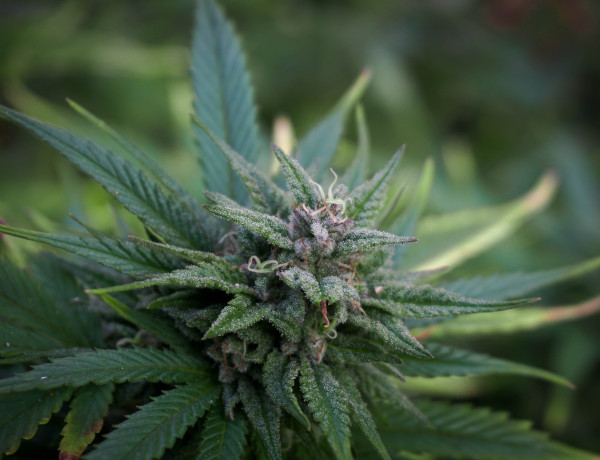
CBD or cannabidiol is a non-intoxicating compound that comes from hemp. It doesn’t cause impairment, nor does it make a person feel high. Over 80% of Americans know what CBD is, and one in five of them use it. Its popularity has skyrocketed over the years because of claims that it has therapeutic properties and medicinal benefits.
Cannabidiol contains more or less 0.3% THC or tetrahydrocannabinol, which is significantly lower than the volume found in marijuana. Nevertheless, some sectors continue to question its legality in the food and drug industry, like the U.S. Food and Drug Administration (FDA).
Thousands of consumers buy and use cannabidiol-containing products. Numerous brick-and-mortar and virtual shops sell dietary supplements, food, cosmetics, and CBD oil products. Nevertheless, the FDA has yet to formulate a final and formal regulation for CBD-infused food and beverages. The federal agency continues its research and studies to gather relevant information on essential factors like CBD’s quality, safety, and long-term effects on those who use it.
The FDA created a page on its website called “What You Need to Know (And What We’re Working to Find Out)” to solicit contributed information about CBD and products containing cannabis or cannabis-derived compounds. Here are some of the agency’s observations, findings, and rulings.
The FDA has limited information on the effects of cumulative and sustained CBD use
The agency does not have enough data on what increasing or sustained use of CBD can do to children, the elderly, pregnant and lactating women, and other vulnerable consumers. The FDA is not saying CBD is unsafe, but they have no reliable conclusions yet that can support the approval of the use of cannabidiol products.
The FDA recognizes the growth of the CBD market
Sales of CBD-infused products have increased significantly, and the FDA is aware of this. Although the agency served warnings to several manufacturers and businesses in the past, they recognize that shutting down the cannabidiol market is not a good idea.
The FDA is working with industry representatives and stakeholders to gather more relevant information to add to the general knowledge of CBD.
The FDA insists that CBD is not a dietary supplement
Several bipartisan lawmakers filed H.R. 5587 in the House of Representatives. The bill seeks to require the FDA to acknowledge CBD derived from hemp as a dietary supplement. Despite this,
the agency firmly reiterated that CBD is not a dietary supplement and should not be sold or marketed as such.
The FDA warns manufacturers and companies making far-fetched claims about CBD products
The FDA’s goal is to call out and stop manufacturers and companies that are marketing their products by spreading far-fetched, over-the-top claims about CBD’s effects. There is a call for conducting new sampling studies to provide additional information regarding product mislabels and unfounded allegations.
The need to regularly update data is essential since the 2018 Farm Bill legalized hemp and all of its derivatives. Likewise, hemp is also identified as an agricultural commodity regulated by the USDA (United States Department of Agriculture).
The FDA considers hulled hemp, hemp seed protein, and hemp seed oil as GRAS
Hulled hemp, hemp seed protein, and hemp seed oil are GRAS – or generally recognized as safe. They can be used in human food but should comply with requirements.
The FDA approved Epidiolex, a CBD prescription drug
Epidiolex is a CBD prescription drug for patients suffering from the Lennox-Gastaut Syndrome and the Dravet Syndrome. These rare and severe pediatric diseases cause seizures to children two years of age and older. The FDA approved the use of Epidiolex as the oil helps decrease all types of seizures Lennox-Gastaut and Dravet patients suffer from.
Two other prescription drugs, Marinol and Syndros, are also FDA-approved. These cannabis-related products treat anorexia or appetite loss in people with AIDS who are suffering from weight loss.
The FDA allows the selling of CBD products while they work on quality regulations
While the FDA is working on the regulation of CBD use to ensure its quality and safety, the agency generally allows the manufacturing and selling of cannabidiol-infused products in the market. Their only stern warning is for companies mislabeling the products and claiming miraculous results.
The Congress, stakeholders, manufacturers, and the CBD market continue to look forward to the FDA’s federal regulatory guidelines for CBD manufacture and use. For industry leaders, the sooner the FDA finalizes its stance, the better the situation will be for small businesses, hemp farmers, and the unregulated CBD market.
About the AuthorLauren Klesser is the Content Marketing Strategist for Half Day CBD, a thoughtfully-curated brand of organic hemp-derived products like CBD oils, CBD vape, and CBD gummies, which are designed to help manage pain, anxiety, stress and sleep issues. In her spare time, she plays axe throwing and escape games with her family and friends.




